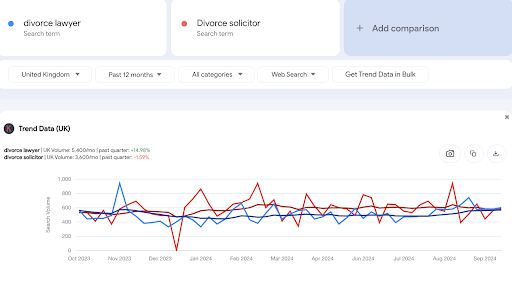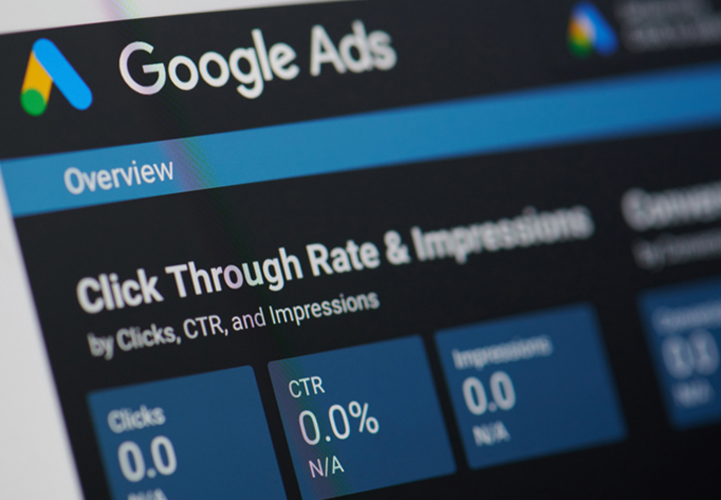Introduction
Artificial Intelligence (AI) has rapidly become a pivotal force in digital marketing, transforming how businesses plan, execute, and optimise their marketing strategies. As AI technologies like ChatGPT and Google Bard evolve, they’re reshaping the marketing landscape, making it crucial for marketers to understand and leverage these innovations. In this comprehensive guide, we’ll explore what AI in digital marketing entails, how it’s used, its advantages and disadvantages, and practical strategies to harness its power.
What is AI in Digital Marketing?
AI in digital marketing refers to the application of artificial intelligence technologies to enhance various marketing functions. This includes planning, executing, and optimising marketing strategies to improve performance, efficiency, and cost-effectiveness. AI employs machine learning and large-language models (LLMs) to analyse vast amounts of data, turning it into actionable insights, automated actions, and personalised content.
In essence, AI helps marketers understand customer behaviour, predict outcomes, automate tasks, and create customised content. This leads to more targeted and efficient marketing efforts, saving time and resources while improving overall results.
How Do Digital Marketers Use AI?

Artificial Intelligence (AI) is increasingly becoming a cornerstone of digital marketing strategies, with a broad range of applications that enhance efficiency and effectiveness. A survey of over 1,000 marketers reveals that 64% utilise AI tools in their roles, although the depth of integration into daily workflows varies significantly. Only 21% of marketers report that AI is extensively integrated into their everyday processes. Here’s a deeper dive into how digital marketers are leveraging AI:
1. Data Analysis and Reporting
AI’s role in data analysis and reporting is one of its most impactful applications. Used by 40% of marketers, AI tools help aggregate and analyse vast amounts of data from multiple sources, providing a holistic view of marketing performance. Here’s how AI enhances data analysis and reporting:
- Aggregating Data: AI tools can pull data from various platforms (social media, email campaigns, website analytics, etc.) and consolidate it into a unified dashboard. This integration allows marketers to see all relevant metrics in one place, making it easier to track performance across different channels.
- Identifying Trends and Patterns: Advanced machine learning algorithms can detect patterns and trends within data that might not be immediately apparent. This could include recognising emerging customer behaviours, pinpointing successful campaign elements, or identifying potential issues before they become major problems.
- Automated Reporting: AI can automate the creation of reports, saving time and reducing human error. Marketers can set up automated reports to be generated at regular intervals, which can then be customised to focus on specific metrics or insights.
- Predictive Analytics: AI tools can forecast future trends based on historical data. For example, they can predict how changes in marketing strategies might impact customer behaviour or campaign success, allowing marketers to make data-driven decisions.
Google Trends using AI to the support keyword research

2. Research
AI is also transforming the research process in digital marketing. Used by 39% of marketers, AI tools streamline and enhance research activities in several ways:
- Market Research: AI-powered tools can analyse vast amounts of data from market research reports, social media, and other sources to provide actionable insights. They can identify market trends, consumer preferences, and competitive landscape nuances faster than traditional methods.
- Summarising Articles: AI algorithms can quickly summarise lengthy articles, research papers, and industry reports. This feature saves time and provides marketers with concise, relevant information, enabling them to stay informed without getting bogged down by excessive details.
- Sentiment Analysis: AI tools can analyse social media and other online content to gauge public sentiment about a brand, product, or industry. This analysis helps marketers understand how their target audience feels and adjust their strategies accordingly.
- Competitor Analysis: AI can monitor competitors’ activities, including their digital marketing campaigns, content strategies, and social media presence. This information helps marketers identify opportunities and threats within their competitive landscape.
Example of how AI can support Sentiment Analysis

3. Content Creation
Content creation is another area where AI is making a significant impact, with 38% of marketers using AI tools for generating various types of content. Here’s how AI is revolutionisingrevolutionizing content creation:
- Generating Text Content: AI can create text-based content such as blog posts, social media updates, and email copy. Tools like ChatGPT and other language models can produce coherent and contextually relevant content based on prompts provided by marketers.
- Creating Visual Content: AI tools can assist in generating visual content, including images, infographics, and even video clips. For example, AI-driven design tools can create custom graphics or edit images based on specific design criteria.
- Content Optimisation: AI tools can analyse existing content and provide recommendations for improvement. This might include optimising headlines for better engagement, adjusting content for SEO, or suggesting changes to enhance readability and impact.
- Personalisation: AI can help create personalised content tailored to individual users based on their behavior, preferences, and interactions. This level of personalisation enhances user engagement and increases the effectiveness of marketing campaigns.
- Content Curation: AI can automate the process of curating content from various sources, helping marketers stay up-to-date with industry news and trends. This curated content can be used to inform their own content strategies and share valuable information with their audience.
Canva created imagery for Marketing Campaign

See How My Agency Can Drive REAL Results for Small Business
- Pay Per Click Advertising (PPC) –
Dominate page 1 of Google & Social Media from day 1 – see real results! - World-Class Sales Support – Deliver world-class sales training to close MORE business.
- AI-Lead Management – Drive employee accountability using AI lead management generating significant revenues.
Accelerating business growth in a digital world…
AI in Digital Marketing: Pros and Cons
Artificial Intelligence (AI) has made a profound impact on digital marketing, offering a range of advantages while also introducing new challenges. As AI tools and technologies continue to advance, it’s crucial to understand both the benefits and drawbacks of incorporating AI into your marketing strategies. Here’s an expanded look at the pros and cons of AI in digital marketing:
Pros
Increased ROI
- Optimised Campaigns: AI enhances performance by analysing real-time data to optimise marketing campaigns. It can adjust strategies based on immediate feedback and performance metrics, reducing wasted ad spend and improving overall campaign effectiveness. For example, AI-driven tools can analyse click-through rates, conversion rates, and customer interactions to fine-tune ad targeting and messaging.
- Real-Time Adjustments: AI enables marketers to make data-driven decisions on the fly. This agility allows for rapid adjustments to strategies, such as reallocating budget to high-performing channels or tweaking ad copy for better engagement, ultimately boosting return on investment (ROI).
- Cost Efficiency: By automating routine tasks and streamlining processes, AI helps in reducing operational costs. For instance, AI can automate bid adjustments in programmatic advertising, leading to more efficient ad spending and improved cost-efficiency.
Speed and Efficiency
- Accelerated Content Creation: AI significantly reduces the time required for content creation. Marketers report saving over three hours per piece of AI-generated content, whether it’s social media posts, blog articles, or email campaigns. This acceleration allows for faster campaign execution and more agile marketing strategies.
- Automated Processes: AI tools can automate repetitive tasks, such as data entry, email responses, and social media management. This automation frees up marketers to focus on more strategic and creative aspects of their roles, enhancing overall productivity.
- Enhanced Scalability: AI enables marketers to scale their efforts more efficiently. For example, AI-powered tools can manage and optimise multiple ad campaigns simultaneously, ensuring consistent performance across various channels without requiring proportional increases in human resources.
Better Customer Experience
- Personalised Interactions: AI enhances customer experiences by personalising interactions and recommendations. For example, AI-driven recommendation engines can suggest products based on previous purchases or browsing behaviour, leading to more relevant and engaging experiences for users.
- Customer Retention: Personalised content and interactions foster stronger relationships with customers, increasing loyalty and retention. AI can tailor email content, website experiences, and social media interactions to individual preferences, making customers feel valued and understood.
- Proactive Engagement: AI can anticipate customer needs and proactively engage with them through chatbots or automated messages. For instance, if a customer is showing signs of dissatisfaction, an AI-powered chatbot can offer assistance or escalate the issue to a human representative before it impacts the customer’s overall experience.
Data-Based Marketing Decisions
- Comprehensive Insights: AI facilitates data-driven decision-making by analysing large volumes of data to provide actionable insights. This includes identifying customer segments, predicting market trends, and understanding campaign performance, which helps marketers make informed decisions.
- Predictive Analytics: AI tools can forecast future trends and outcomes based on historical data. For instance, predictive analytics can help marketers anticipate customer behaviour, such as purchasing patterns or churn risks, allowing for proactive strategies to address these factors.
- Enhanced Reporting: AI-powered analytics platforms can generate detailed reports and visualisations, making it easier for marketers to understand complex data and communicate insights to stakeholders effectively.
Cons
Content Quality and Accuracy
- Factual Errors: AI-generated content can sometimes contain factual inaccuracies or errors. While AI tools can produce content quickly, they may lack the nuance and accuracy of human writers, leading to potential misinformation. This is particularly critical when producing content that requires high levels of accuracy, such as technical articles or industry reports.
- Brand Voice Consistency: AI-generated content may deviate from a brand’s established voice and tone. Ensuring that AI-generated content aligns with the brand’s identity often requires human oversight to edit and adjust the content, maintaining consistency and authenticity.
- Bias and Ethical Concerns: AI algorithms can inadvertently perpetuate biases present in the training data. This can result in content that reflects these biases, potentially harming the brand’s reputation and alienating certain customer groups. Regular audits and adjustments are necessary to mitigate these risks.
Privacy Concerns
- Data Collection and Usage: AI’s reliance on extensive data, including cookies and browsing history, raises privacy issues. The collection and use of personal data must comply with privacy regulations, such as GDPR or CCPA, to protect user information and maintain trust.
- Transparency and Consent: Ensuring transparency in how AI collects and uses data is crucial. Users should be informed about data practices and have the option to provide or withdraw consent. Failure to address these concerns can lead to legal repercussions and damage to the brand’s reputation.
- Data Security: The storage and management of vast amounts of data used by AI systems pose security risks. Marketers must implement robust security measures to protect sensitive information from breaches or unauthorised access.
Copyright Concerns
- Ownership of AI-Generated Content: The legal framework for AI-generated content is still evolving. Issues related to copyright and ownership of content produced by AI tools are complex and may vary by jurisdiction. Marketers need to understand and address these legal considerations to avoid potential disputes.
- Intellectual Property Issues: AI tools are trained on vast datasets that may include copyrighted material. There is a risk that AI-generated content could unintentionally replicate or closely resemble existing works, raising concerns about intellectual property infringement.
- Legal Uncertainty: The rapidly changing legal landscape around AI technology means that marketers must stay informed about new regulations and guidelines to ensure compliance and protect their intellectual property rights.
Evaluating Non-Quantifiable KPIs
- Qualitative Metrics: Measuring qualitative aspects of marketing, such as brand reputation, customer satisfaction, or emotional engagement, can be challenging with AI alone. While AI excels at quantitative analysis, capturing the nuances of qualitative metrics often requires human judgement and interpretation.
- Long-Term Impact: Assessing the long-term impact of AI-driven marketing initiatives on brand perception or customer loyalty can be difficult. AI tools provide valuable data and insights, but understanding their broader implications requires ongoing evaluation and adaptation.
- Integration with Human Insights: Combining AI-driven insights with human intuition and creativity is essential for a comprehensive understanding of marketing effectiveness. AI should complement, rather than replace, human expertise in evaluating non-quantifiable KPIs.
Examples of AI in Digital Marketing
Netflix:
Netflix utilises AI to personalise user experiences by adjusting the artwork of movie and TV show recommendations based on viewing history. For instance, if a user frequently watches movies featuring a specific actor, Netflix might highlight that actor in the artwork of recommended movies.
Spotify:
Spotify employs AI to curate personalised playlists and recommendations based on users’ listening habits, preferences, and interactions. This level of personalisation enhances user engagement and satisfaction.
Amazon:
Amazon leverages AI for predictive analytics and sales forecasting. By analysing past purchase data and customer behaviour, Amazon can recommend products with high precision, thus boosting conversion rates and optimising marketing campaigns.
DreamHost:
DreamHost’s Business Name Generator uses AI to suggest business names based on input keywords, checking domain availability in real-time. This tool aids entrepreneurs in establishing their online presence efficiently.
How to Use AI in Digital Marketing
Define Your Goals:
Before integrating AI, clarify your objectives. Are you aiming to improve campaign effectiveness, save time, or reduce costs? Defining clear goals and key performance indicators (KPIs) will help measure success and guide AI implementation.
Audit Your Infrastructure:
Assess your current tools and data infrastructure. Identify areas where AI can be implemented, considering the quality and accessibility of your data. A thorough audit will help you prioritise which aspects of your marketing strategy to enhance with AI.
Audit Staff Capabilities:
Evaluate whether your team has the necessary skills to utilise AI tools effectively. You may need to invest in training or hire experts to support AI integration. Position AI as an opportunity for staff development rather than a threat to their jobs.
Select the Right AI Marketing Tools:
Choose AI tools that align with your goals and infrastructure. Options include out-of-the-box solutions like ChatGPT or Google Bard, and custom solutions that integrate with your existing systems. Consider factors such as ease of use, integration capabilities, and support.
Test and Analyse AI:
Start with a pilot project to test AI applications in specific areas. Monitor performance and compare AI-generated results with human-generated content. Use the insights gained to refine your AI strategy and scale successful implementations.
Build a Culture of Innovation:
Encourage your team to embrace AI as a tool for innovation. Foster a culture of experimentation and continuous improvement, and keep communication open to address any concerns or challenges.
Harnessing the Power of AI
AI has the potential to revolutionise digital marketing by enhancing efficiency, personalisation, and performance. As AI technology continues to evolve, it’s crucial for marketers to stay informed and adaptable. Implementing AI effectively requires careful planning, testing, and a willingness to embrace change.
While AI offers significant advantages, including increased ROI, speed, and improved customer experiences, it also presents challenges such as content accuracy and privacy concerns. By understanding these factors and leveraging AI strategically, marketers can unlock new opportunities and drive success in their digital marketing efforts.
In summary, integrating AI into your digital marketing strategy is not just about adopting new tools but about enhancing your overall approach to engaging with customers and optimising marketing performance. Embrace AI as a powerful ally in your marketing toolkit, and stay ahead in the ever-evolving digital landscape.
Quechua Digital Advisory is a specialists professional services digital agency, based on London, offering end-to-end digital services, from Pay Per Click Advertising to Automation, Website Development, SEO, and much more, including Sales Consultancy. If you’d like to chat, give us a call or take a look at our track record. Our team will be happy to show you how we’ll run your campaigns and make it as effective as possible to accelerate digital growth in a digital world. You can get in touch with us here.














